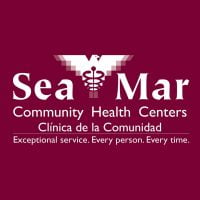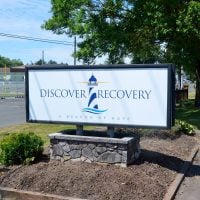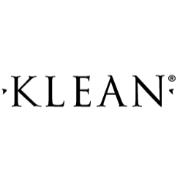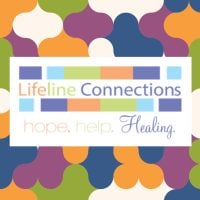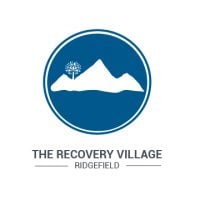Wahkiakum Chemical Dependency
Drug Rehab Center in Cathlamet, Washington
Wahkiakum Chemical Dependency, located in Cathlamet, Washington, offers comprehensive outpatient treatment programs for addiction and substance abuse, including specialized programs for children and adolescents, as well as interventions, relapse prevention, stress management, and family therapy services.
About This Cathlamet, WA Facility
Wahkiakum Chemical Dependency in Cathlamet, Washington is a comprehensive outpatient treatment program that helps individuals overcome addiction and substance abuse. They provide a full continuum of quality care, including Partial Hospitalization Programs (PHP), Intensive Outpatient Programs (IOP), and individual and group counseling. The staff is committed to providing an individualized approach to recovery, tailored to each patient's unique needs and challenges.
Wahkiakum Chemical Dependency offers a range of services to aid their clients in their recovery process, from evaluations and assessments to group and individual counseling. They have specialized programs for children and adolescents, as well as for adults. They also provide interventions, relapse prevention, stress management, and family therapy services. The facility works hand-in-hand with individuals and their families to create an individualized care plan that is tailored to the person’s specific needs and challenges.
Wahkiakum Chemical Dependency is licensed and accredited by the Washington State Department of Health and the Office of Alcohol and Substance Abuse Programs. They are also a member of the Washington State Association of Substance Abuse and Addiction Professionals, and are the recipient of the National Council on Alcoholism and Drug Dependence – National Addiction Prevention Award. Their team of professional counselors and clinicians are dedicated to providing the highest quality of care to their clients.
Genders
Ages
Modality
Additional
Conditions and Issues Treated
Rehab centers exist in Cathlamet, WA to help individuals bounce back from substance abuse, which is an umbrella term for drug and alcohol addiction. Drug addiction refers to the use of illegal drugs and improper use of prescription drugs. Centers like Wahkiakum Chemical Dependency provide individuals a chance to access individual and group therapy that can be monumental for recovery.
Substance abuse includes all problems that stem out from using various psychoactive substances. It is also a diagnostic term used by Diagnostic and Statistical Manual of Mental Disorders (DSM-IV) to define the mental and physical impairment or distress caused by misuse and overuse of certain substances in a period of 12 months.
Opioid addiction involves addiction to legal or illegal opioids. It may happen very quickly with any opioid use. Sometimes within a matter of days. Opioid addiction is a known as a high-risk factor for future heroin addiction.
Opioid withdrawal can be extremely uncomfortable and lead the user to continue to use even if they want to quit. Stopping using an opioid requires careful medical observation. Sometimes the withdrawal can persist for many weeks, which can put the user at a high risk for relapse.
It is recommended to receive inpatient treatment and a medically supervised detox like those offered at Wahkiakum Chemical Dependency in Cathlamet, WA, WA, to manage the withdrawal process while learning lasting tools to maintain recovery. In some circumstances medications can be used to manage opioid addiction.
Substance use disorder falls under two categories: Alcohol or Drug Abuse and Drug Dependence. An individual suffering from a substance use disorder and mental health disorders is said to have a co-occurring disorder or a dual disorder. Individuals in Cathlamet, WA with substance use disorders and mental health problems are said to suffer from a ‘dual diagnosis’.
The most frequently identified mental health issues found in individuals with substance use disorders include anxiety, depression, schizophrenia, and schizoaffective disorder.
Levels of Care Offered
This center offers a variety of custom treatment tailored to individual recovery. Currently available are Aftercare Support, Drug Rehab, Dual-Diagnosis, Intensive Outpatient, Outpatient, with additional therapies available as listed below.
Intensive outpatient programs are an integral part of the continuum of care for people addicted to drugs and alcohol. Most intensive outpatient programs in Cathlamet, WA comprise a 3-hour session three times a week. Usually, the intensity of these programs diminishes over time. These programs offer a range of services, including counselling, medical treatment, and monitoring alcohol and drug use. The programs are ideal for people who do not need treatment at an inpatient or residential facility and continue to need extended care and support.
Outpatient treatment is treatment that occurs when a patient is not checked into a rehab facility. The patient may show up for therapy sessions, go through detox and engage in other therapies to help them recover. However, they will do so while they live at home in Washington.
Outpatient therapy provided by Wahkiakum Chemical Dependency is usually recommended as a follow up to inpatient therapy. It helps patients adapt to their normal lives after treatment. In some cases, it can also be an alternative to inpatient treatment. People may choose this route if they are unable to leave their jobs, children or if they don’t have the money for inpatient treatment. However, inpatient treatment is the best way to recover from addiction.
Aftercare support involves the support given to a Cathlamet, Washington patient after they complete treatment. It helps them adjust to normal life. It may include setting them up in a halfway house and enrolling them in programs like Narcotics Anonymous (NA) and Alcoholics Anonymous (AA). Wahkiakum Chemical Dependency‘s patients may also be provided with career training to help them get back into the job force.
Wahkiakum Chemical Dependency‘s Therapies & Programs
Individual therapy aims to identify the core issues that would have led the patient to substance abuse and address the root cause effectively. Patients find the therapist as a person who they can trust. It helps them to open up and discuss personal and sensitive issues, which they may not be comfortable discussing in a group.
Couples therapy is an approach wherein the patients and their partners are engaged together as a part of the treatment process. When a person becomes a victim of substance abuse, it affects the patient and the people around him, particularly his partner. Their relationship can become strained due to lack of communication, financial issues, loss of trust, lack of intimacy, and physical abuse in more severe cases.
Couples therapy addresses these issues and tries to rebuild the trust between the partners. The partner’s involvement in the process will result in greater chances of treatment success and sustained recovery.
Family therapy is a set of therapeutic approaches that assumes that the entire family is a system. It utilizes the strengths and resources of the family to help the patient refrain from resorting to substance abuse. It helps to repair relationships and improve communication between family members.
Group therapy happens at Wahkiakum Chemical Dependency in a controlled group environment, as opposed to a one-on-one setting. It supports Cathlamet, WA patients’ recovery by offering a sense of comfort and letting them know that they are not alone. Through shared conversations, patients also learn to develop faith and understanding and gain insight on their addictions.
Unresolved trauma is often a key reason why many patients resorted to substance abuse. Trauma therapy refers to treatment wherein specialist therapists help the patients to resolve the trauma that led the patients to substance abuse. The trauma could be physical abuse, sexual abuse, war, natural disasters, divorce, accident, loss of a loved one, etc. Thinking of these traumatic events causes emotional disturbances like anxiety, depression and results in addiction. If trauma is the primary cause of substance abuse, then both issues must be addressed. Otherwise, there is a risk of relapse. Trauma therapy also improves the cognitive functions and provides long term benefits.
Dialectical Behavior Therapy (DBT) is an improved version of Cognitive Behavioral Therapy (CBT). DBT is a treatment of choice for people suffering from self-harming behaviors characterized by cutting and suicidal thoughts or inclinations.
This treatment is developed to help individuals recognize their thought patterns, behaviors, and feelings. It has demonstrated its effectiveness for people that are finding it difficult to control their emotions and urges. Conditions such as obsessive-compulsive disorder and borderline personality disorder also benefit from DBT as it imparts individuals stress-management techniques and enhanced self-esteem so they can sustain their sobriety by reducing the impact of triggers and out-of-control emotions.
Cognitive behavioral therapy (CBT) is a way of addressing concerns through talking. It can be used in individual counseling sessions. Talking through issues with professionals at Wahkiakum Chemical Dependency can identify sources of discomfort or unhealthy thoughts. It is a way of learning about yourself and your individual perceptions. CBT is a healthy way of addressing some behaviors which may be bringing unintended consequences in your life.
Rational Emotive Behavior Therapy (REBT) sees a person suffering from substance addiction to have illogical reasoning, counterproductive actions, and does not see things clearly. Due to this, REBT deals with cognition, images, and behavior extensively to rectify the client’s bad habits. REBT pushes an individual to become more reasonable and choose a life without the repercussions of addictions.
Patients at Wahkiakum Chemical Dependency in Cathlamet, WA learn how to self-soothe by conducting rational self-counseling. REBT provides their patients with the skill sets necessary in handling problems all by themselves, without seeking professional help. The process calls for practice, reiteration, and bolstering the new way of thinking being introduced to the patient.
Contingency management is a way to help motivate someone to remain substance free. It is a process of rewarding positive choices and good outcomes. As humans we are wired to recreate experiences that lead to positive feelings. Through this method incentives are used for completing positive steps towards a sober life. This may be a reward for attending meetings, remaining sober or for employment goals.
Patient Experience
Experiential Therapy at Wahkiakum Chemical Dependency
Experiential therapy works on the principle that the perception of individuals determines their behavior. It is different from medication and talk therapy and suits those who have difficulty in expressing themselves and interact. Experiential therapy works by using tools and activities to recreate past experiences and encourages the release of suppressed thoughts that were responsible for the negative feelings and drug addiction.
Role-playing, arts and crafts, music, animal care, rock climbing, etc. are some of the activities used in this therapy. Gradually the individual will experience calmness and love and change their perception positively. Other than drug addiction, Experiential therapy is useful in various behavioral and eating disorders.
Payment Options Accepted
For specific insurance or payment methods please contact us.
Is your insurance accepted?
Ask an expert, call (888) 674-0062
Additional Details
Specifics, location, and helpful extra information.
Cathlamet, Washington 98612 Phone Number(360) 795-8630 Meta DetailsUpdated November 25, 2023
Staff Verified
What else do people call Wahkiakum Chemical Dependency?
People have occasionally also searched for “Health and Human Services in Washington”
Patient Reviews
There are no reviews yet. Be the first one to write one.
Cathlamet, Washington Addiction Information
Washington's substance use, abuse, and addiction rates have followed the trends of the rest of the over the past years. Methamphetamine abuse is the biggest threat to Washington. Heroin-related overdoses increased by almost 450% from 2006 to 2016. 20% of all annual deaths in Washington are somehow drug and/or alcohol-related. Drugs are widely abused in Washington because they are easily trafficked in and out of the state.
Treatment in Nearby Cities
- Hoquiam, WA (57.7 mi.)
- Darrington, WA (164.1 mi.)
- Medical Lake, WA (285.5 mi.)
- Tacoma, WA (84.6 mi.)
- Moses Lake, WA (205.0 mi.)
Centers near Wahkiakum Chemical Dependency
The facility name, logo and brand are the property and registered trademarks of Wahkiakum Chemical Dependency, and are being used for identification and informational purposes only. Use of these names, logos and brands shall not imply endorsement. RehabNow.org is not affiliated with or sponsored by Wahkiakum Chemical Dependency.




